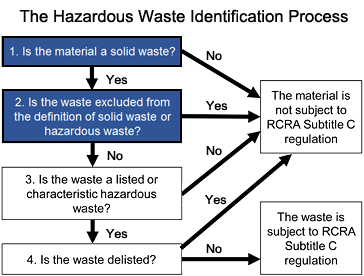Getting My Reclaim Waste To Work
Getting My Reclaim Waste To Work
Blog Article
A Biased View of Reclaim Waste
Table of ContentsThe Reclaim Waste Diaries5 Simple Techniques For Reclaim WasteSome Known Questions About Reclaim Waste.Some Known Details About Reclaim Waste Excitement About Reclaim Waste
Explore the types, occurrences, and forms of fluid waste. Domestic sewage waste describes the waste and items from a property septic container. This type of waste is created by human beings in residences, institutions, and other buildings. This only includes septic systems that have a drainpipe field. The appropriate monitoring and disposal of domestic sewage waste call for liquid waste to be moved to a sewer treatment plant where the correct approaches and tools are put on purify and throw away waste.
Industrial waste usually includes possible risks, such as flammable products or a blend of liquid and strong waste items, and requires an extra sophisticated and detailed disposal process. The disposal of business waste commonly involves the purification of waste before transportation to make certain secure and appropriate disposal. Hazardous waste is produced from byproducts and runoff of commercial procedures and manufacturing.
This type of waste can not use the same sewer administration transportation or processes as septic or business liquids. The commercial waste monitoring process needs the assessment and screening of fluid waste prior to it undergoes the disposal process (liquid waste disposal melbourne). Runoff waste is the liquid waste that comes from overflow and excess stormwater in very booming areas or cities
Runoff waste can create contamination and flooding if not handled effectively. Guaranteeing correct waste management can avoid catastrophes and minimize ecological harm.
Some Of Reclaim Waste
Contact PROS Solutions today to learn more about our waste administration and disposal services and the appropriate ways to look after the liquid waste you produce.
(https://reclaimwaste1.start.page)Do you recognize what occurs to your water when you pull the plug, purge the bathroom or drain the cleaning maker? No? Well, it's worth recognizing. This so-called 'wastewater' is not just a crucial source but, after treatment, will be released to our land, rivers or the ocean. Utilized water from commodes, showers, baths, kitchen sinks, laundries and commercial procedures is called wastewater.

water utilized to cool down machinery or tidy plant and devices). Stormwater, a kind of wastewater, is drainage that streams from agricultural and urban locations such as roof coverings, parks, gardens, roads, courses and rain gutters right into stormwater drains, after rainfall. Stormwater flows untreated directly to neighborhood creeks or rivers, ultimately getting to the sea.
A Biased View of Reclaim Waste
In Queensland, most wastewater is dealt with at sewage therapy plants. Wastewater is transferred from domestic or commercial websites via a system of drains and pump stations, called sewage reticulation, to a sewer therapy plant. City governments build, keep and operate most sewer treatment plants. Operators are accredited under the Environmental Management Act 1994 to release cured wastewater at an appropriate ecological criterion right into rivers.
The Division of Natural Resources recommends city governments about handling, operating and maintaining sewage systems and therapy plants. In unsewered locations, city governments might call for owners to set up specific or household sewer therapy systems to deal with domestic wastewater from toilets, kitchens, shower rooms and laundries. The Department of Natural Resources authorizes using household systems when they are confirmed to be reliable.
Many stormwater receives no therapy. In some brand-new neighborhoods, treatment of some stormwater to remove clutter, sand and crushed rock has started utilizing gross pollutant catches. Wastewater therapy happens in 4 phases: Eliminates solid matter. Bigger solids, such as plastics and various other objects incorrectly released to sewers, are gotten rid of when wastewater is travelled through Full Article displays.
Wastewater after that moves into large tanks where solids clear up and are removed as sludge. Grease and residue are skimmed from the surface. Makes use of tiny living microorganisms referred to as micro-organisms to damage down and get rid of continuing to be liquified wastes and fine bits. Micro-organisms and wastes are incorporated in the sludge. Gets rid of nitrogen and phosphorus nutrients that could create algal flowers in our waterways and endanger marine life.
3 Simple Techniques For Reclaim Waste
Nutrient removal is not readily available at all sewer treatment plants due to the fact that it calls for pricey specialist devices. Clear liquid effluent produced after therapy might still have disease-causing micro-organisms - liquid waste removal melbourne.

This normally suggests wastewater has actually to be dealt with or pollutants removed prior to it can be released to waterways. Most wastewater moves right into the sewerage system. Under the Act, city governments carry out approvals and licences for eco relevant tasks (ERAs) entailing wastewater releases that might have a neighborhood effect. The department provides approvals and permits to Ages including wastewater releases that could have a regional or statewide impact.
The Single Strategy To Use For Reclaim Waste
Or else, samples are taken for research laboratory evaluation. Commonly many tests are required to develop the levels of each of the different toxins such as oils, hefty metals and chemicals in water. Tracking offers valid info about water quality and can verify that permit problems are being fulfilled. The details obtained through tracking supplies the basis for making water top quality choices.
Report this page